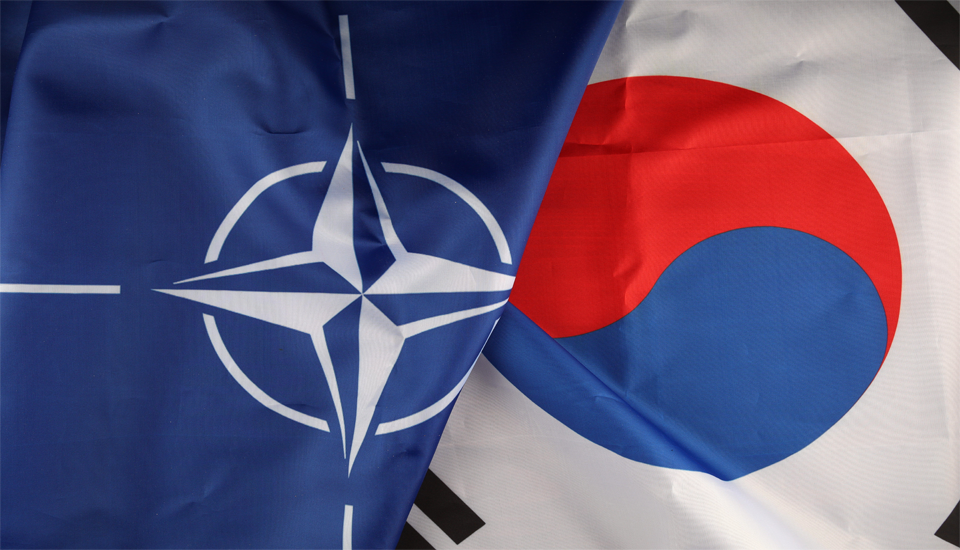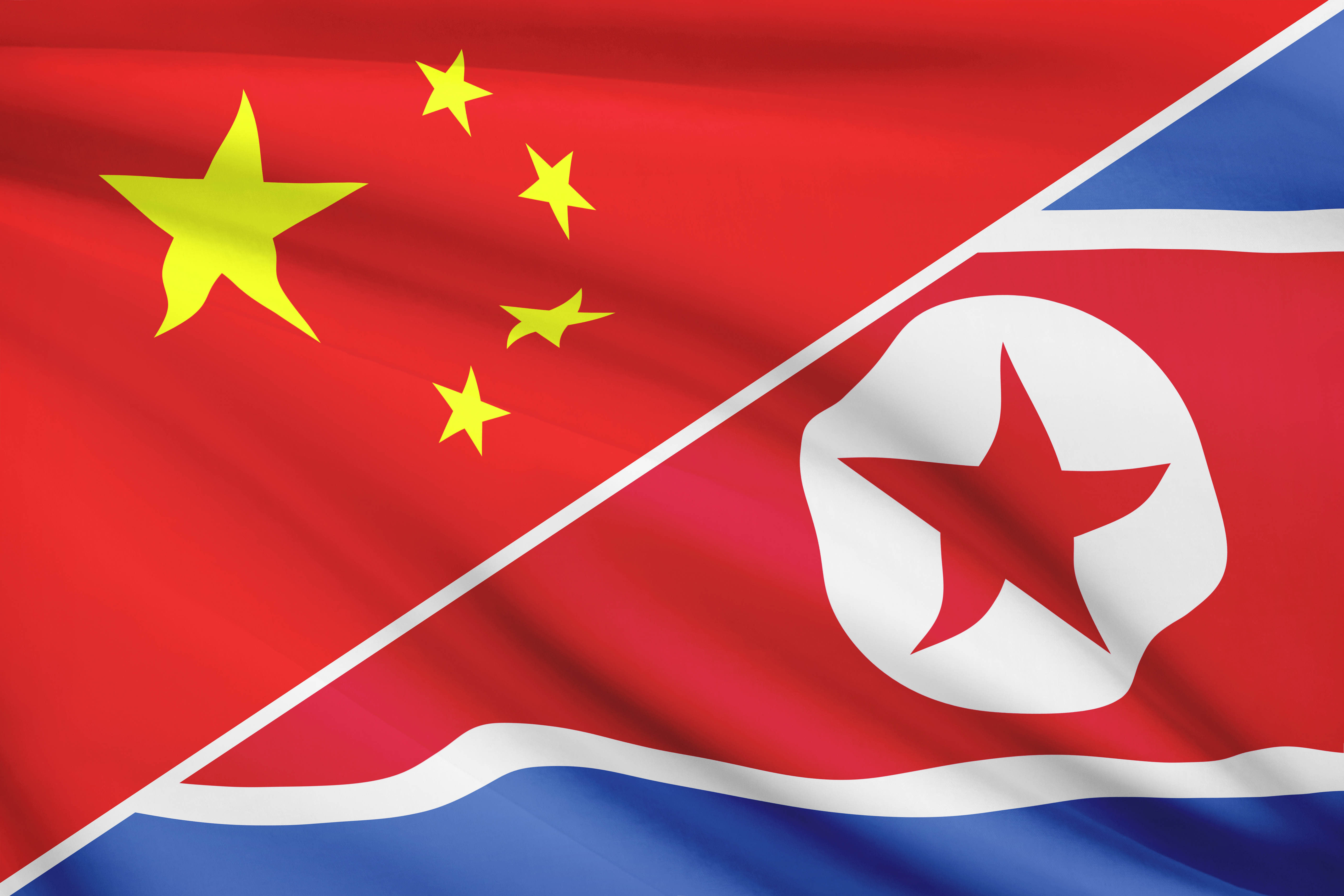NK Update for June 2022
Special Report | July 15, 2022
Hanna Lee
Ph.D. candidate at Seoul National University
In this month’s NK Update, Hanna Lee, Ph.D. Candidate at Seoul National University, provides an overview of current events related to North Korea in June, covering North Korean missile tests and the international community’s response; the evolving nature of U.S.-ROK and U.S.-ROK-Japan relationships; and President Yoon’s comments on North Korea, sanctions, and the Indo-Pacific at the Madrid NATO Summit. She calls for increased international cooperation on sanctions to prevent a resort to military escalation, which would result in “global chaos.”
On June 5, Pyongyang launched eight short-range ballistic missiles toward the East Sea, just a day after the ROK-U.S. joint military exercise. This was the eighteenth military provocation this year and the third since the inauguration of President Yoon Suk-yeol. On July 6, President Yoon’s office stated, “(The president) ordered our military to swiftly and firmly punish North Korea in the event that it carries out a provocation,” and stressed that “any provocation will be met with a strong and united response from South Korea in close coordination with the United States.”
According to South Korea’s Joint Chiefs of Staff, South Korea and the U.S. fired eight surface-to-surface Army Tactical Missile System missiles toward the East Sea and conducted a joint air power demonstration in the Yellow Sea, mobilizing 20 warplanes, in response to North Korea’s provocations. Despite North Korea’s ongoing missile tests, China and Russia have maintained their stance on protecting Pyongyang from additional sanctions, as evidenced by their decision to veto the U.S.’ United Nations (UN) draft resolution to toughen the North Korean sanctions regime. China has doubled down on its position, stating that “it is hoped that all parties will remain calm, exercise self-restraint, and avoid taking any actions that may escalate tensions.” It also blamed the U.S. for “the current deadlock on the Korean Peninsula.”
Meanwhile, the South Korean First Vice Foreign Minister Cho Hyun-dong, U.S. Deputy Secretary of State Wendy Sherman, and Japan Vice Foreign Minister Mori Takeo held a meeting in Seoul. After, they released a ROK-U.S.-Japan trilateral joint statement on June 9, in which they strongly condemned North Korea’s repeated ballistic missile launches and committed to advancing trilateral security cooperation. The statement also “urged North Korea to abide by its obligations under relevant United Naitons Security Council (UNSC) resolutions and immediately cease actions that violate international law, escalate tensions, destabilize the region, or endanger global peace and security, and instead engage in dialogue toward the complete denuclearization of the Korean Peninsula.”
On June 13, Secretary Antony J. Blinken and Foreign Minister Jin Park held their first face-to-face bilateral meeting. They affirmed their commitment to strengthening the U.S.-ROK alliance and urged North Korea to cease additional provocations. Furthermore, in his opening speech at a roundtable event hosted by the Center for Strategic and International Studies, Minister Park emphasized the significance of the bilateral alliance and stressed the importance of ROK-U.S.-Japan trilateral cooperation to “oppose all activities that undermine the rule-based international order.”
From June 29 to 30, President Yoon attended the 2022 North Atlantic Treaty Organization (NATO) summit in Madrid. At the summit, President Yoon stated, “To lead North Korea toward the path of denuclearization, we must clearly show that the international community has a stronger determination to denuclearize North Korea than the North’s reckless intent to develop nuclear missiles.” He further claimed that “North Korea’s nuclear and missile programs are clear violations of the resolution of the United Nations Security Council, and pose a grave challenge to peace and security on the Korean Peninsula and the international community.”
On the same day, at a meeting with Prime Minister Fumio Kishida and President Yoon, President Biden emphasized the significance of trilateral cooperation to solve the North Korean nuclear issue and to build a free and open Indo-Pacific. President Biden also urged U.S. partners in the Indo-Pacific, including Australia, Japan, New Zealand and South Korea, to support NATO on global issues and addressed that “attendance of all four of these leaders (Australia, Japan, New Zealand, and the Republic of Korea) highlights the global resolve to hold Russia accountable for its brutal and unprovoked war in Ukraine and our shared determination to defend the rules based international order.” After the trilateral meeting, the South Korean Office of the 20th President stated that President Biden and Prime Minister Kishida agreed on the necessity of trilateral cooperation and a stronger joint response through continued dialogue.
Given the ongoing war in Ukraine and tightened international sanctions against Russia, China and Russia have developed closer ties and are straying away from the use of sanctions as a punitive measure. This raised skepticism about both the effectiveness of international sanctions and the international community’s ability to impose sanctions. This also raises concerns about whether China would participate in international efforts towards North Korea’s denuclearization.
Under these circumstances, the U.S., its allies, and NATO member states have held a number of high-level talks in which the U.S. pushed for strengthened cooperation with its Asian allies to promote security in Asia and the Indo-Pacific. In line with such efforts, South Korea has affirmed its commitment to strengthening the ROK-U.S. alliance against various threats that undermine the rules-based international order. The lack of international solidarity on the North Korean sanctions regime leaves Seoul and Washington with no other choice but to pursue a more direct and firm military deterrence strategy against North Korea’s military activities in order to maintain security on the Korean Peninsula.
In the face of strengthened ROK-U.S. military cooperation, North Korea may pursue more aggressive measures, reflective of their firm determination to develop nuclear capabilities. This would not only threaten East Asian security, but also escalate tension between ROK-U.S.-Japan and North Korea-China-Russia, hindering prospects for international cooperation. This would further diminish the effectiveness of various international agreements signed to maintain the postwar order, eventually instigating global chaos.
As such, under the dynamics of a tit-for-tat deterrence strategy, further North Korean provocations would escalate military tensions and destabilize peace and security in East Asia. In this light, it is imperative to build international cooperation to impose additional sanctions on North Korea. Additionally, South Korea and its allies should impose effective measures urging Pyongyang to exercise ‘self-restraint.’■
■ Hanna Lee is a Ph.D. candidate in the Department of Political Science and International Relations at Seoul National University. She has received her MA in the Department of Political Science and International Relations at Seoul National University and her BA from the School of International Studies at Peking University. She has previously worked as a research assistant at the Asia Center and the Center for International Studies at Seoul National University. Her research interests include Chinese Politics & Foreign Policy, US-China relations, China’s Crisis Behavior and the South China Sea Disputes.
■ Typeset by Seung Yeon Lee Research Associate; Sarah MacHargIntern;
For inquiries: 02 2277 1683 (ext. 205) | slee@eai.or.kr
Security and External Relations

President Yoon's Trip to Madrid: Rethinking Seoul's Policies toward Moscow, Beijing, Tokyo, and Pyongyang
Yang Gyu Kim | July 11, 2022
The Yoon-Biden Summit and Prospects for the Yoon Administration’s North Korea Policy
Young-ho Park | June 21, 2022

Prospects for DPRK-China Relations in 2022 and Challenges for the Yoon Administration
Bong Sup Shin | June 08, 2022
LIST